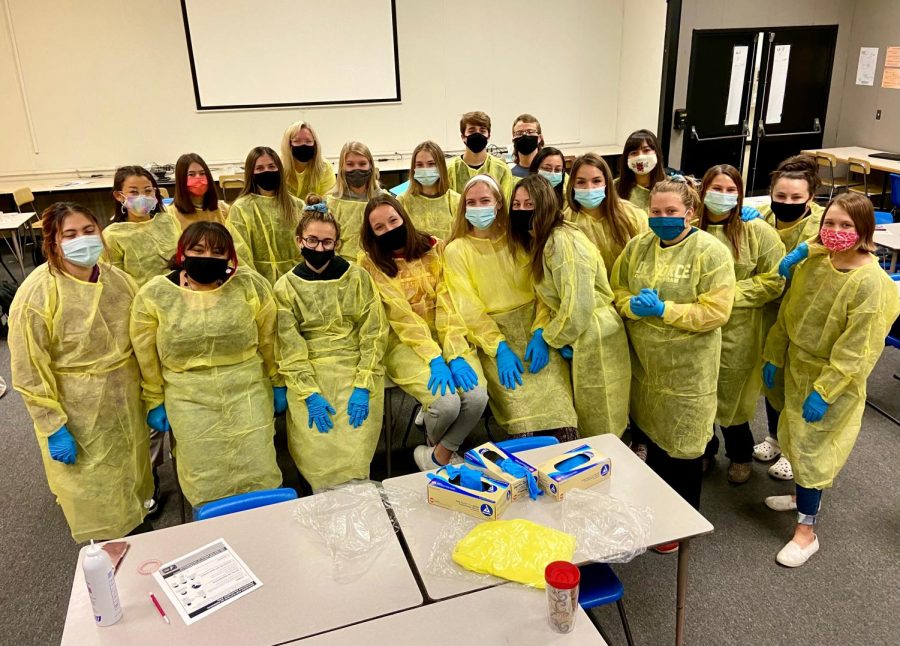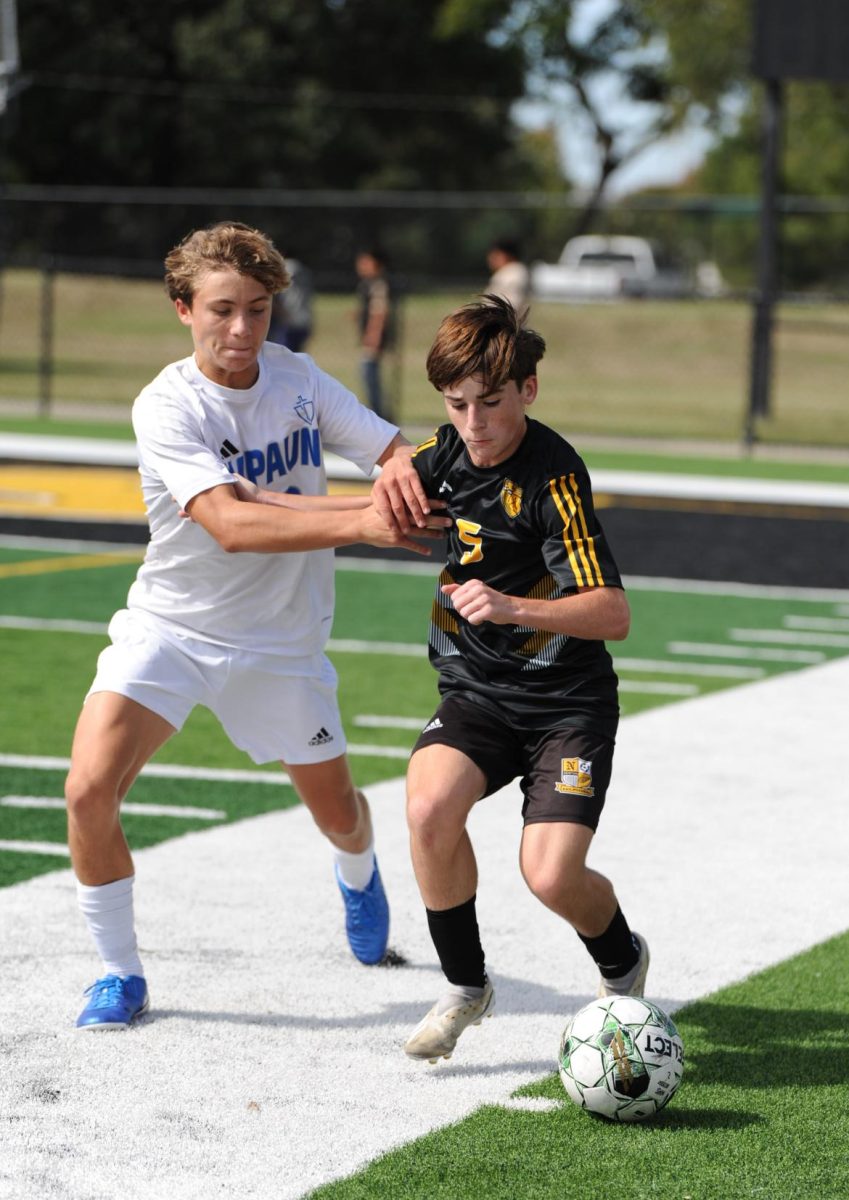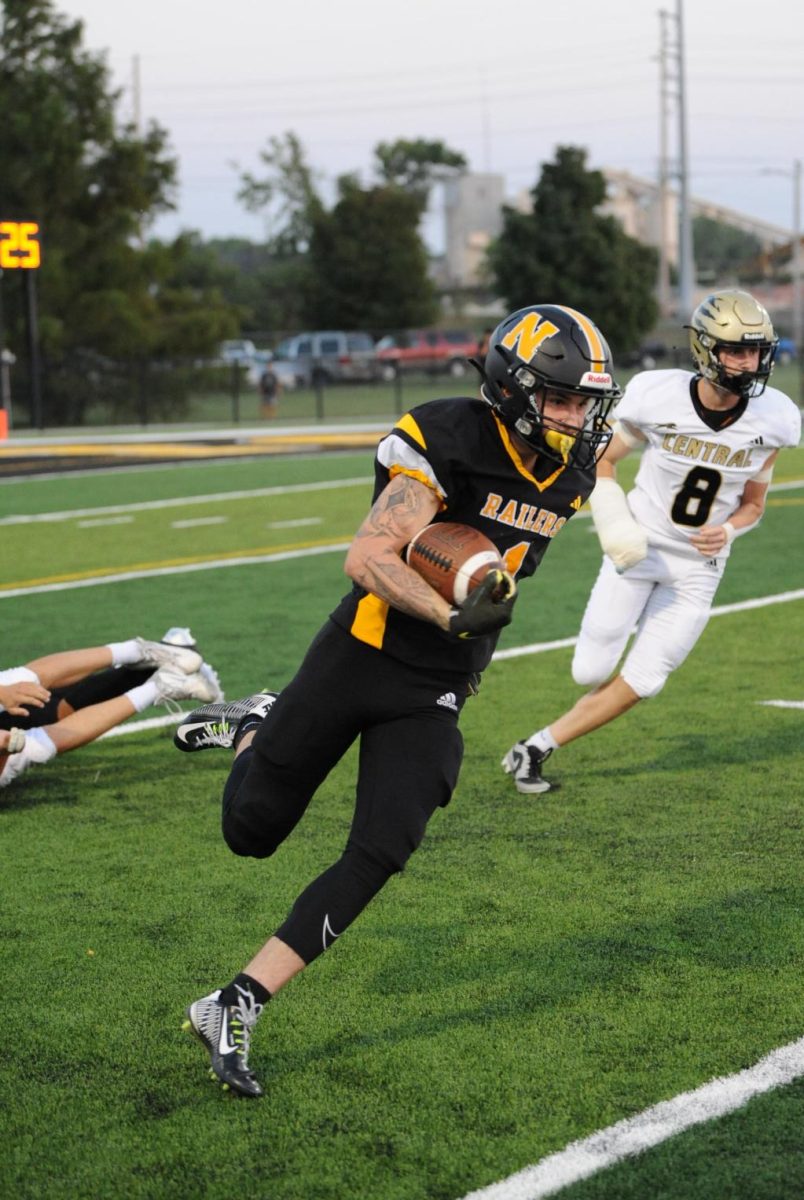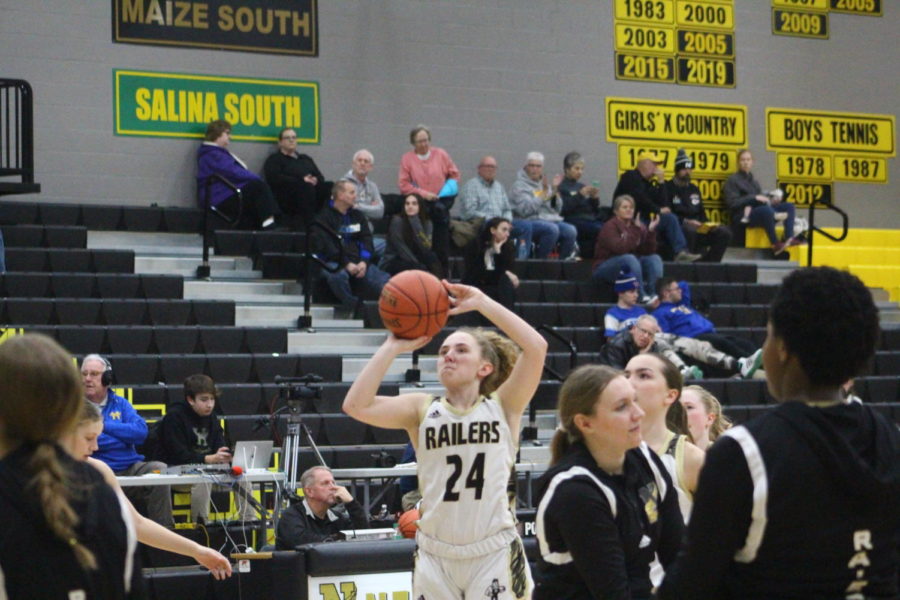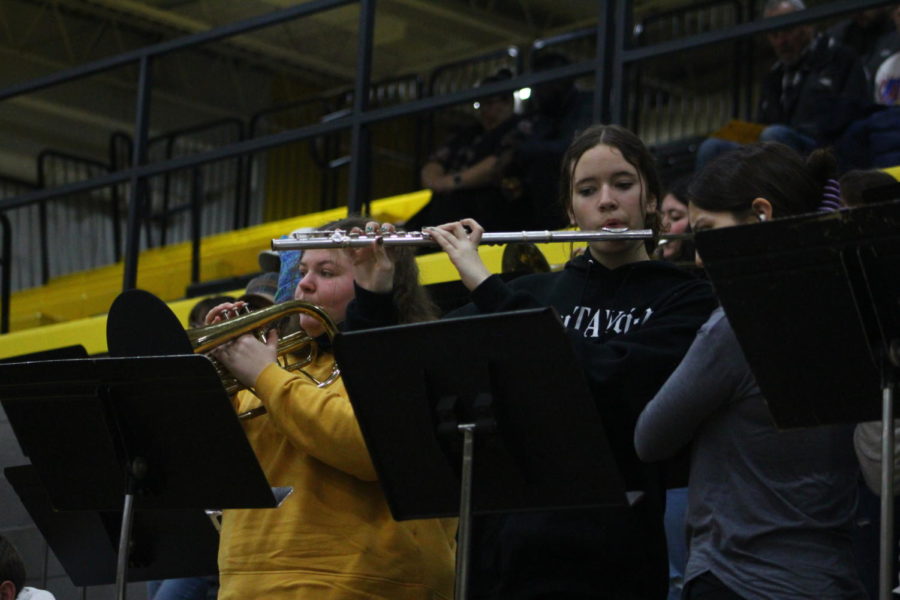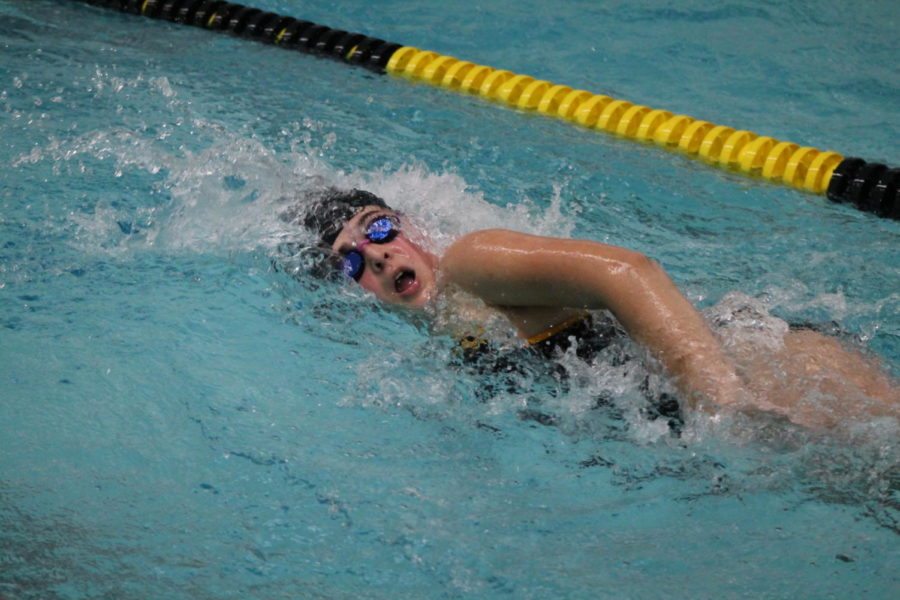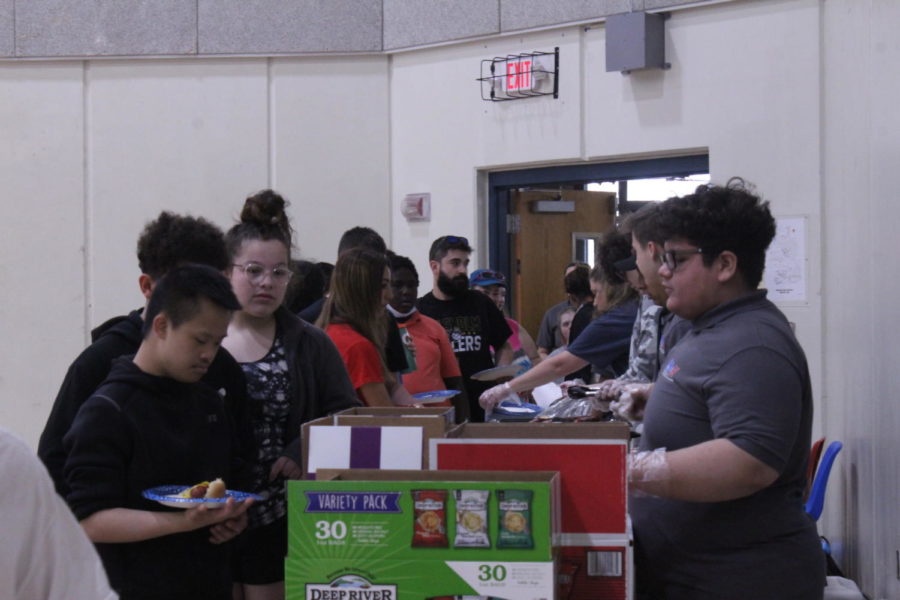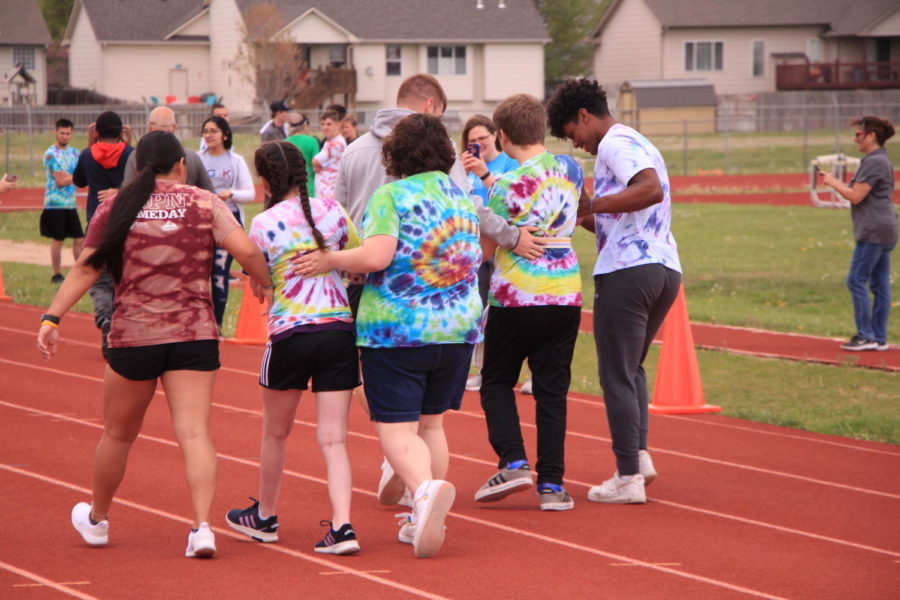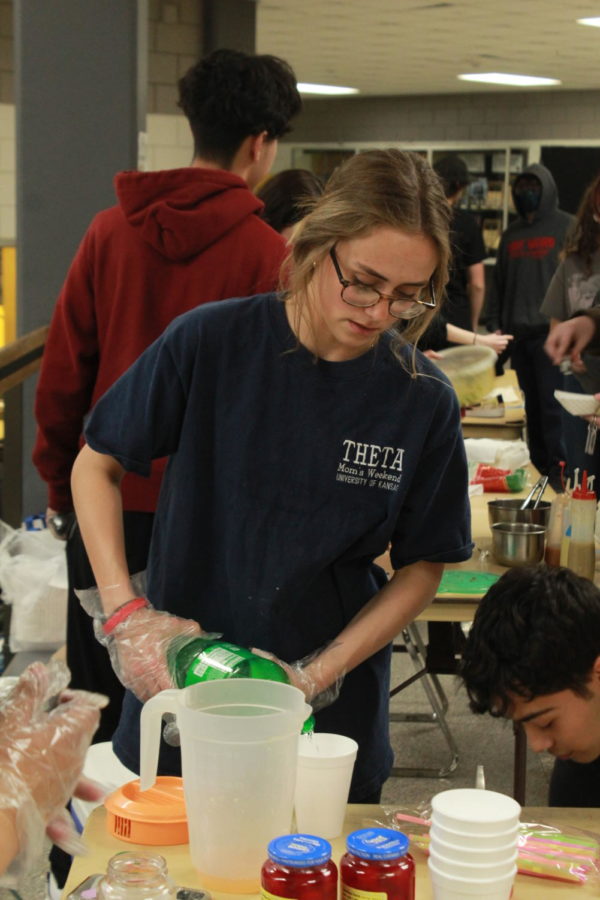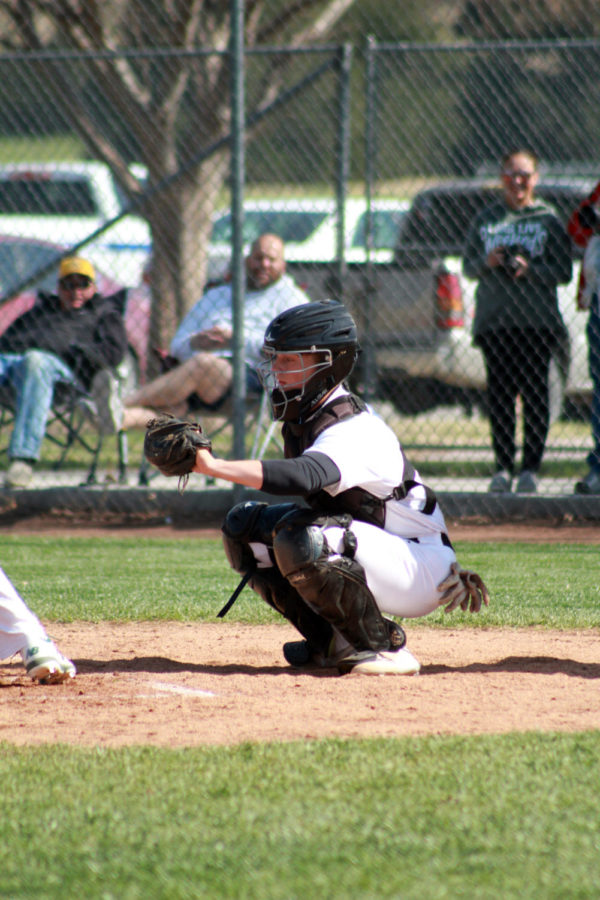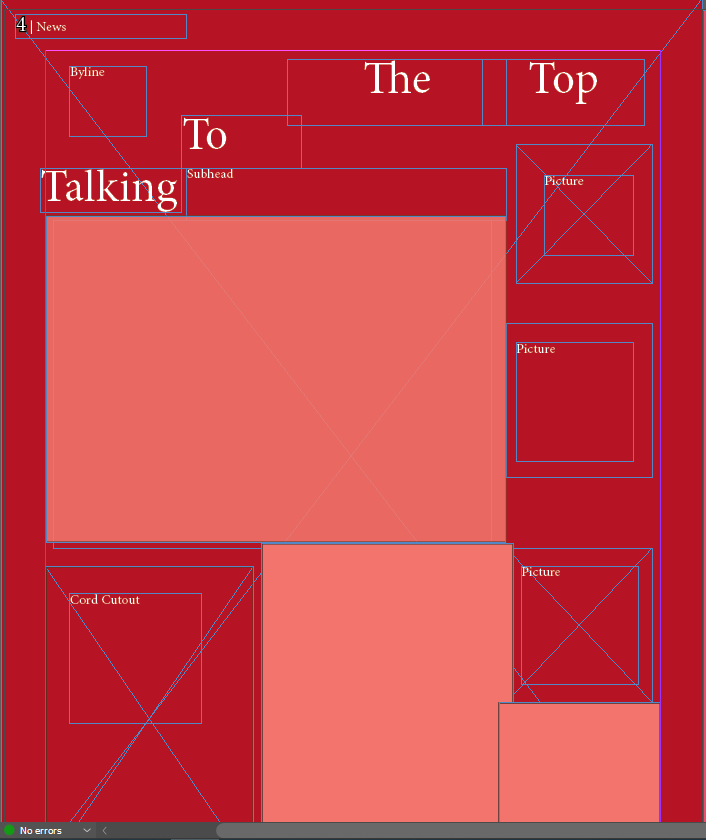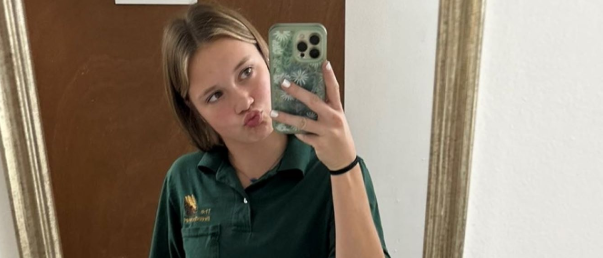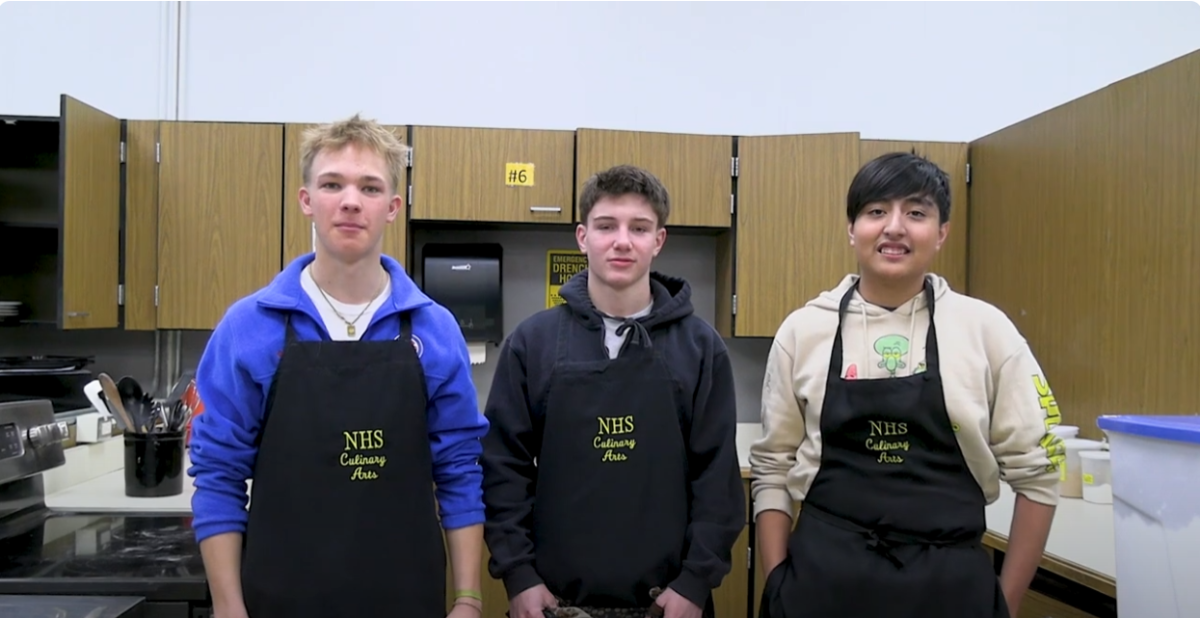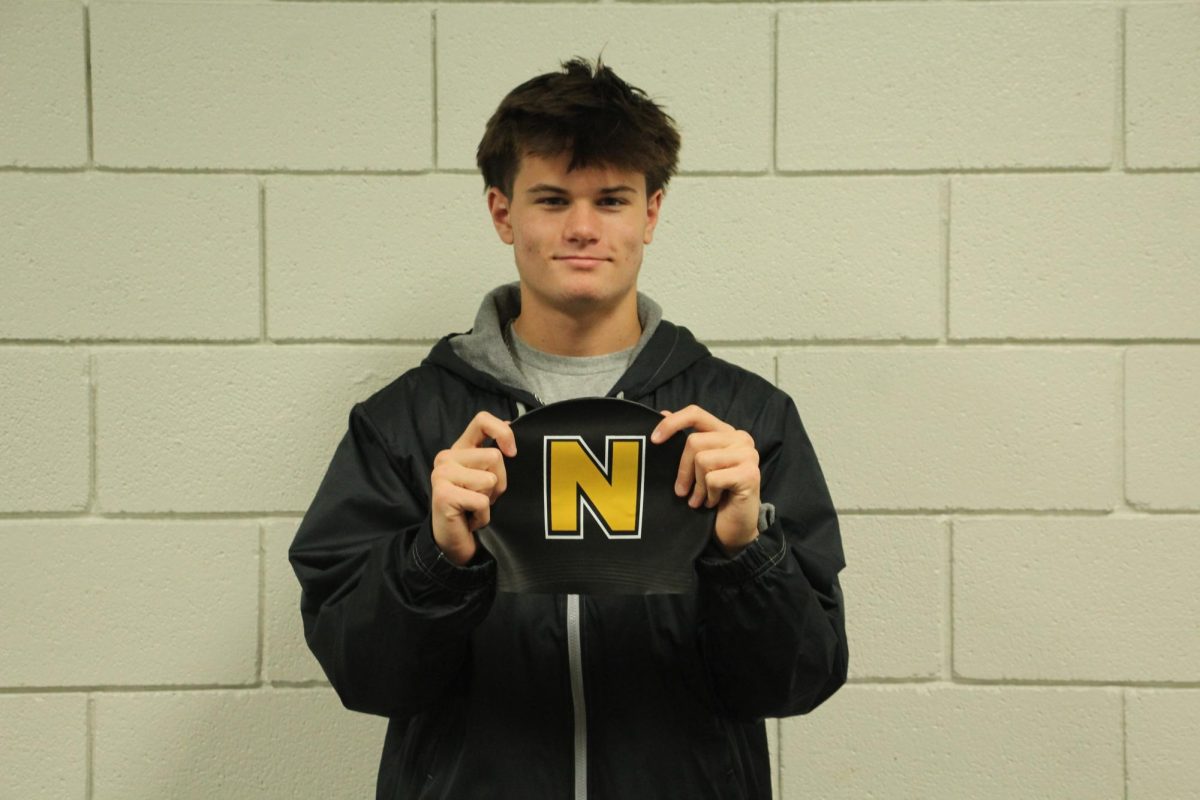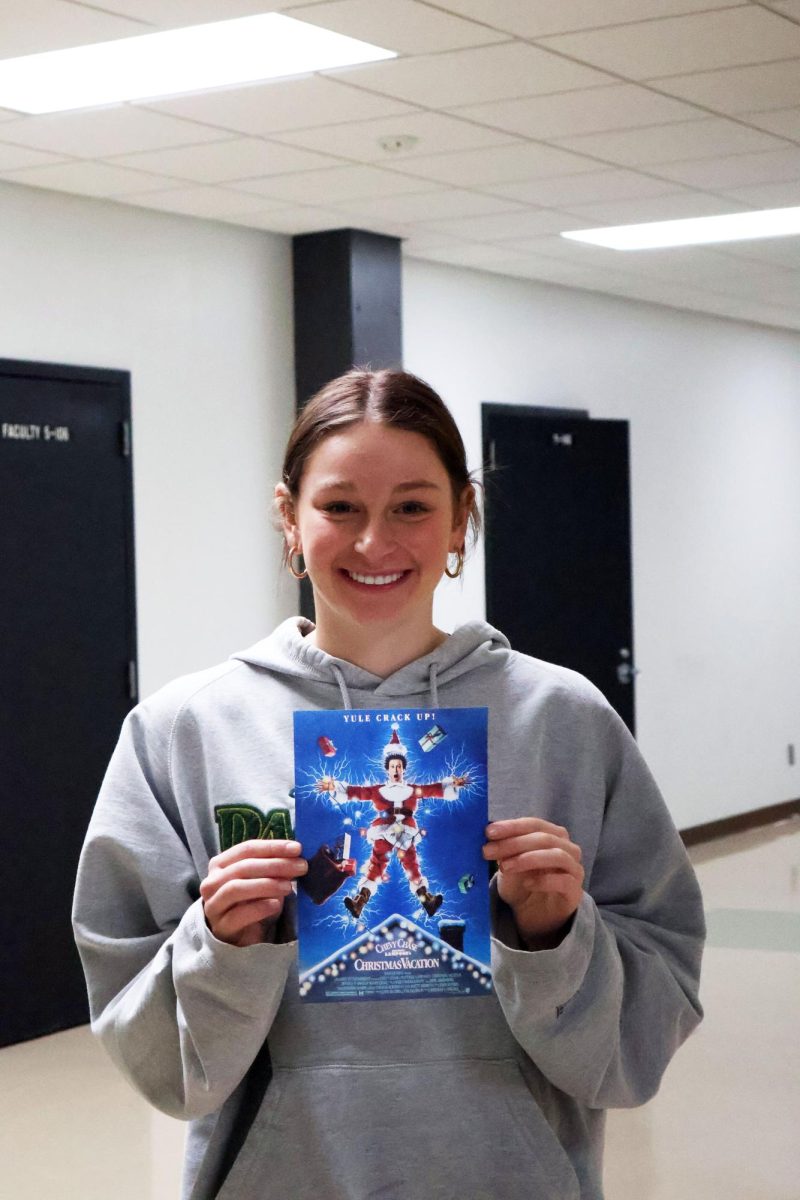CNA students uniquely adapt to the pandemic
CNA students pose for a quick photo while dressed in personal protective equipment (PPE).
January 13, 2021
The demand for healthcare workers across the nation is at an all time high as the COVID-19 pandemic rages on. NHS is lucky to host an academic pathway into the medical field for those interested in pursuing healthcare work. The medical science pathway includes a wide array of classes from Fire Science and Emergency Medical Technician training through Hutch Community College (HCC) to Sports Medicine and Health Science.
In the midst of these classes is the highly sought after CNA class through HCC, due to its direct correlation to the workforce. This class is aimed at teaching high school and college age students the fundamental knowledge of the aging process with emphasis on meeting the physical needs requirements of geriatric residents of health care facilities. With restrictions from the pandemic making many aspects of the class even more challenging, CNA teacher Ginger Jones has made every effort to keep her students engaged and positive throughout the difficult and unprecedented times.
“I love to laugh and have fun,” Jones said. “I truly believe that as caregivers we can bring joy and light to our residents while accomplishing mundane tasks. I can teach you all the proper ways to take care of someone, however, until you let your guard down to allow your empathy to shine through you’ll never truly understand what making a difference in our residents lives can be.”
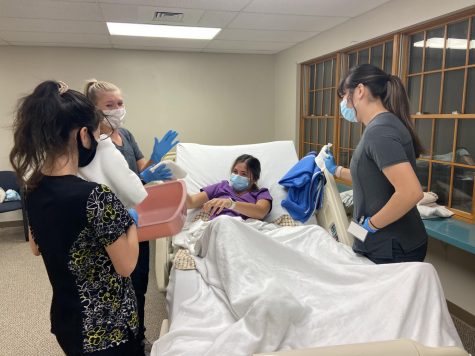
Senior Lindsey Antonowich decided to take CNA this semester with the intention of continuing her medical studies after the conclusion of the class. According to Provo College, obtaining your CNA certification is a great way to enter the healthcare industry and begin your journey toward nursing. Some of the advantages to becoming a CNA while still in high school is that you can work part time while studying and then start working full time as soon as you finish school.
“[I decided to take CNA because] I wanted a job that was healthcare related to see what I wanted to work as in the future and it’s a good job to save up for college,” senior Lindsey Antonowich said.
A typical day in Jones class consists of a large variety of activities. Students learn ethics, communication, normal aging body system functions, nutrition, diseases, observation skills, documentation and personal care skills throughout the course. One of Jones’s favorite activities for her high school students is a Friday activity called “Spin the Urinal.” This game consists of spinning an actual urinal and teaching the rest of the class what you know about a specific topic that you have drawn out of the urinal.
“We do not sit still much in my class,” Jones said. “We are always interchanging the necessity of the reading portion with the fun part, hands on skills, open discussions and lots of laughs.”
In order to complete the class, like any ordinary high school student, CNA students will have to complete a final test. In addition to this, CNA students must pass both theory and clinical portions of the course according to the NHS course catalog. Clinicals are typically performed in the nursing homes working side by side with a CNA of that facility but due to COVID, clinicals are currently being performed in a simulated lab. Meaning that students practice their knowledge on each other and dummies.
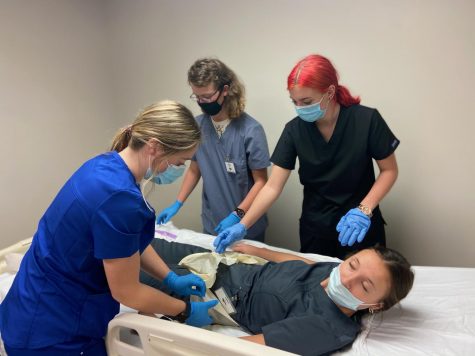
“When speaking of the clinical portion of this course, this is the FUN part,” Jones said. “We get to meet together outside of school hours and actually put into practice all of the things we have learned in class. This is when it all comes together.”
Jones describes a typical day in the nursing industry with the possibility to be quite chaotic. One may start their day on the nursing floor with a set amount of daily tasks to be performed, however, when an emergency arises it pauses the day until that resident has had proper treatment. This theory rings true for many aspects of life currently while dealing with COVID. Specifically, for classes switching from remote to hybrid or in person learning. According to Jones, one must simply hope for the best and readjust and revise as needed.
“The pandemic has affected the education [of all students] I believe slightly,” Jones said. “If anything, it has taught us [in CNA] that in order to survive you must be flexible and able to go with the flow. This is a true reflection on how nursing works.”
When returning to school in early September, with the virus still in their midst, many CNA students worried how their education would be affected. Many questioned whether or not they would be prepared for their jobs that lied ahead. Jones made sure to give students plenty of opportunities to practice their knowledge with the tools they had available, each other.
“Not being able to get in person experience for clinicals was difficult because it makes you feel like you may not be ready,” Antonowich said. “We practice most things on each other like hair care, oral care and taking vital signs and the other tasks are practiced on mannequins.”
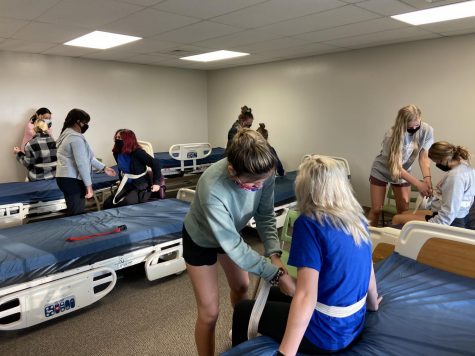
According to the National Center for Biotechnology Information, nursing education has utilized simulation in some form or another for quite some time. Some options being models of anatomic parts, various computer-based learning programs and even whole body mannequins. Jones’s preferred method of demonstration is a whole body mannequin.
“Her name is Gurdy and she wears a tracksuit,” senior Alyssa Lujano said. “She has really creepy eyes that we are all kind of scared of so we shut them when we do stuff. She’s missing a foot too.”
Even with the added stress from the pandemic, many students are looking forward to the months ahead where they can truly test their knowledge within the medical field by obtaining their first jobs.
“I think that it may take a little longer to become trained in the job and it will be harder to be confident, but I also think that we won’t go into the job with any preconceived negative ideas about the tasks we need to do,” Antonowich said. “It’s been really fun washing each other’s hair and practicing taking turns and bed making with friends and I will definitely remember when we made chalk drawings for hospital residents.”
Throughout the week of Dec. 7-11, students spread positivity at the Newton Medical Center by creating chalk drawings on the facility’s side walks. These drawings included images, encouraging messages and quotes aimed at brightening hospital residents and staff’s days.
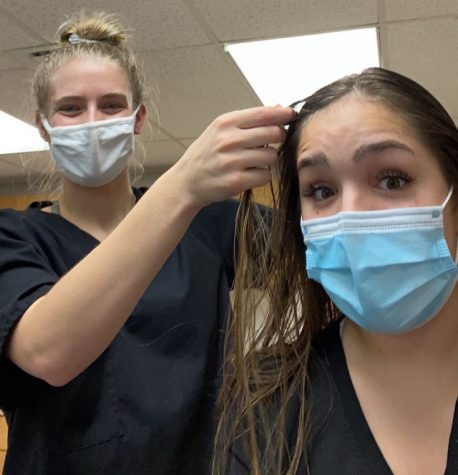
“I was part of [the chalk drawing for hospital residents],” Lujano said. “We did that to show positivity in this difficult time with COVID and not being able to do everything and that was just something that [Jones] wanted us to learn about so that we could learn how to spread positivity when we’re with residents.”
Throughout the semester, CNA students have faced unusual challenges that will influence their performance for years to come. When pursuing the next step in their lives, Jones hopes her students remember to live each day by remaining positive and celebrating the small things.
“Unfortunately, [the pandemic] does affect the readiness for the real world,” Jones said. “The main difference I find is that while working on each other and dummies helps take us out of our comfort zones. There truly is no comparison to sitting down with a resident and looking them in the eyes. We miss out on getting to know who they are and hear their stories. We merely miss out on being able to see the gleam in their eyes as they reflect on their past and you simply cannot simulate or replace that.”

